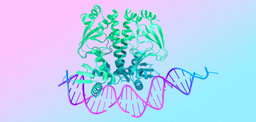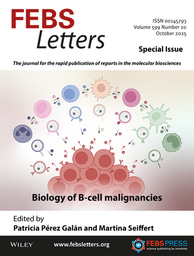FEBS 60th anniversary reflections – Piotr Laidler, FEBS Congress Counsellor

In brief, what is your role at FEBS?
I’m currently FEBS Congress Counsellor (2023–2025), which means I oversee the arrangements for the annual FEBS Congress from the FEBS side – from contracts to budgets to the scientific program, in collaboration with the host Society, the professional conference-organizing company (PCO), and others from FEBS and FEBS Press. At any one time, we may be dealing with the wrap up of one Congress, intense work on the upcoming one, and groundwork for future Congresses. Formerly I served as FEBS Vice-Chair (2020) and Chair (2021–2022).
Tell us a little about your research interests and career.
I’m an emeritus professor of Jagiellonian University, Krakow, Poland. After my PhD in Krakow, I had periods as a postdoc in the USA and Germany. Upon returning to Krakow I habilitated (1993), became Full Professor of Medical Sciences (2004) and led a research group. I held numerous academic positions such as director of the Institute and head of the Department of Medical Biochemistry (1996–2019), chairman of the Council of the Medical School for Foreigners (2002–2012), Vice-Dean of the Faculty of Medicine at the Jagiellonian University (2002–2008), and Vice-Rector of the Jagiellonian University for the Medical College (2012–2016). I taught biochemistry for nearly 50 years.
My research interest initially focused on the role of N-glycans in protein structure and function. Later I got mainly involved in studies on dissimilarities between cancer cells and their normal counterparts in functioning of signaling pathways, including ECM proteins, adhesion molecules, receptors, various kinases and cell cycle proteins, and the EMT in cancer progression.
What were some of your earlier contacts with FEBS?
My first contact with FEBS was in 1999, when I participated in the ‘26th FEBS Meeting’ (Congress) in Nice, France. It was an unforgettable experience due to the high scientific level of lectures and excellent atmosphere among numerous attendees at various stages of their scientific careers.
Later, at the 29th FEBS Congress in Warsaw, Poland in 2004 (which was the 40th anniversary of FEBS), I got the chance to organize a session. It was very demanding yet exciting and an excellent experience. I also participated in some later FEBS Congresses, but the greatest demand and at the same time opportunity was the 44th FEBS Congress in my home city, Krakow, at which I was involved as Congress Cochair/Vicechair and the main local organizer. Memories of that event will remain with me forever.
Why do you volunteer your time now to FEBS leadership and committee work?
FEBS serves the scientific community and brings together life sciences researchers from all over Europe and beyond. It is my great pleasure to serve FEBS as Congress Counsellor. It’s also a unique and great opportunity to continuing a fascinating life journey with science and be in touch with so many distinguished, outstanding scientists – and not a smaller number of their young, very gifted, excellently educated and creative successors. It is also a contribution to unifying, integrating and developing Europe using the best tool – science! FEBS Congresses are an excellent platform for doing that.
Looking back over 60 years of FEBS, what about FEBS or its programs would you pick out as particularly valuable for ‘advancing molecular life sciences’?
I think that two of the most important factors that attract participants to FEBS are its openness for broad participation and the chance its gives to young people to became better recognized members of the international life sciences community.
It is important to be open to countries and member Societies that must develop, and not to limit FEBS activities to a few scientifically best developed and leading countries. The work done by FEBS Executive Committee members and approved by the Council regarding integration and collaboration between countries and Constituent Societies, and support for young scientists, while at the same time ensuring high scientific quality through, for example, participation of Editors-in-Chief of FEBS journals in Congress program development, is very characteristic for FEBS and has an important meaning in the future development of FEBS as a leading federation in life sciences.
What are your main goals at FEBS over the next year or so?
Following important modifications and ideas of my predecessors on FEBS Congress organization, my wish is to fully implement and consolidate the division of roles in the preparation of Congresses between the core PCO (e.g. bid preparation, sponsorship programs, exhibitions, etc.) and FEBS / member Society contributors (FEBS Press Editors-in-Chief, Scientific Advisory Committee, host Societies) focused particularly on developing the best scientific program. I would also like to integrate the goals of the Congress with the aims of other FEBS programs by defining common determinants of action and success.
What do you see as the big unanswered questions in the molecular life sciences for the future?
I would mention here full application of personalized medicine and rational use of artificial intelligence for these and other research purposes, as a helpful "tool" kept under control by those who use it.
Anticipating detailed tasks, research topics and goals seems to me to be a bit risky, as reality has repeatedly proven to us. Who expected a pandemic, an innovative and rapid approach to vaccines, the war in Europe, and such a drastically anti-scientific attitude of a significant part of modern societies? I cannot predict details, yet I know that the power of science will allow us to understand the incomprehensible, to overcome whatever is going to arise. At least it should be that way.
What does FEBS mean to you?
This is my current active life with people of science. What better could I expect from fate!
What FEBS opportunities would you recommend to scientists at your or an earlier career stage?
I would suggest to every life scientist to carefully follow the FEBS website and networking and select the way through which FEBS programs and people could be useful in fulfilling one’s wishes and dreams – which with the help of FEBS may become true!
Top image of post: The 44th FEBS Congress, Krakow, Poland, 2019.





Join the FEBS Network today
Joining the FEBS Network’s molecular life sciences community enables you to access special content on the site, present your profile, 'follow' contributors, 'comment' on and 'like' content, post your own content, and set up a tailored email digest for updates.